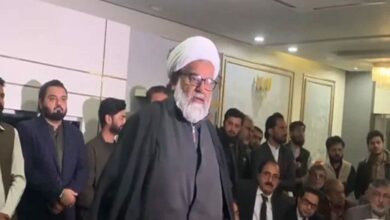POGB: Hunza protesters reject government proposal to link region’s power supply to Jaglot Guru power station
When locals in Hunza, Pakistan, occupied Gilgit Baltistan, opposed a government plan to link the region’s electricity supply to the Jaglot Guru power facility, protests broke out.

The demonstrators, who have voiced their displeasure with the proposal, contend that the power plant should not be expected to supply the more distant and energy-demanding Hunza region since it has not been able to satisfy the electrical demands of neighboring places like Danyore and Gilgit.
Ejaz Gilgiti, a spokeswoman for the protest organizers, emphasized the Guru power station’s shortcomings in an interview with Pamir Times, saying that it hasn’t been able to satisfy the demands of its present service regions. He maintained that moving more demand from Hunza would just make the region’s already severe power constraints worse.
Gilgiti drew attention to the fact that the government’s declaration that Hunza will get 1.2 MW of power from Jaglot was a pure fabrication. He recalled a similar effort months previously by the administration to persuade the Hunza people to agree to a power-sharing arrangement. The area was left in darkness after the last effort, which lasted for four months, failed badly owing to the inadequate power supply, he noted.
“The government is currently spreading false information that we, the people of Hunza, will receive 1.2 MW of electricity from Jaglot,” he stated. There have been previous attempts at this kind of thing. A similar attempt was made to mislead us four months ago. This suggestion is rejected. The true purpose of something is unknown to us.
He went on to say, “This is only a strategy to sow discord among the populace. The government is attempting to incite strife and animosity amongst the Hunza people and those in other areas.
The demonstrators vehemently opposed the idea and demanded alternative environmentally friendly ways to meet Hunza’s electricity demands. Instead of depending on a failing power plant that was already overloaded, they insisted that the government make investments in creating dependable infrastructure that could handle the region’s rising need for energy.





